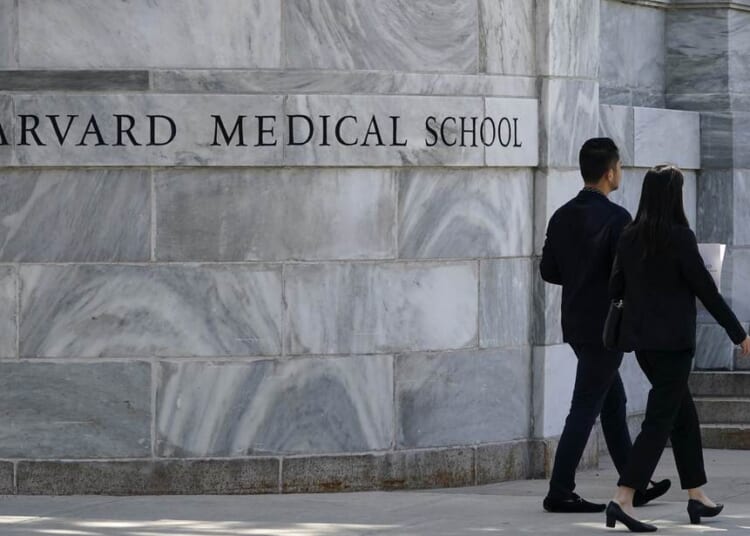This time, a medical school neuroscientist is on the hot seat for research misconduct at Harvard.
Claudine Gay could at least argue that her academic misconduct wasn’t exactly brain surgery, but now that two of the academic scandals are at Harvard Medical School and one includes a neuroscientist, you get the idea.
This is not just a story about DEI; it’s a story about an academy-wide collapse in standards.
— Aaron Sibarium (@aaronsibarium) February 1, 2024
It is brain surgery in this case, and it’s pretty hard for Harvard to deny that there is a fundamental problem regarding academic integrity at its institution now that four separate scandals have popped up in the period of a few months.
Top Harvard Medical School neuroscientist Khalid Shah allegedly falsified data and plagiarized images across 21 papers, data manipulation expert Elisabeth M. Bik said.
In an analysis shared with The Crimson, Bik alleged that Shah, the vice chair of research in the department of neurosurgery at Brigham and Women’s Hospital, presented images from other scientists’ research as his own original experimental data.
Though Bik alleged 44 instances of data falsification in papers spanning 2001 to 2023, she said the “most damning” concerns appeared in a 2022 paper by Shah and 32 other authors in Nature Communications, for which Shah was the corresponding author.
Shah is the latest prominent scientist to have his research face scrutiny by Bik, who has emerged as a leading figure among scientists concerned with research integrity.
You may not have noticed that Harvard’s Chief Diversity Officer was also accused of plagiarism this week. Aaron Siberium of The Washington Free Beacon had that scoop a couple of days ago, and I almost wrote about it. But then again, that a Diversity Officer was a diversity hire and likely a poor scholar seemed so normal at Harvard that I gave it a pass.
But it’s clearly part of a pattern at the institution, where clearly academic standards have been replaced by a relentless fight for moral and academic prestige, earned or not.
A complaint filed with Harvard yesterday makes 40 allegations of plagiarism that span the entirety of Charleston’s thin publication record. In her 2009 dissertation, Charleston quotes or paraphrases nearly a dozen scholars without proper attribution. https://t.co/vHjhyXQTGI pic.twitter.com/XqSQwWR1JQ
— Aaron Sibarium (@aaronsibarium) January 30, 2024
Much more than money, prestige is the currency of academia–it is what justifies the money and power that can accumulate for a person or an institution. Diving head first into DEI has been a route to the kind of prestige that virtue signaling is designed to get, which is why Ivy League schools like Harvard and Penn are among the most committed to DEI. Of course, research publications are the root of prestige for researchers.
You see the results at Harvard, where DEI and the collapse of academic standards have gone hand in hand.
Of course, Harvard is hardly the only institution driven by these pressures–it simply has the farthest to fall in reputation.
My guess–and it is only a guess–is that the farther up the academic food chain you go, the worse the behavior of the academics. The pressures to garner prestige and grant money are particularly acute at such institutions, and the academics likely are considered above reproach because they are at the pinnacle of their fields.
This isn’t just a “bad look” for Harvard or academia–it is the bursting out into the public of a longstanding problem in academia as a whole, especially prestige research. There is a widely-known “replication crisis” already, in which prominent research that has been guiding our understanding of psychology has been impossible to duplicate–making it pretty clear that much of what we “know” is at least questionable.
And, of course, academia has become a real force in politics, enticing people to shape their research and conclusions to ensure ideologically-driven outcomes.
All our major institutions, not just academia, face a similar crisis of integrity. The MSM is already dying because of it, and academia is catching up.
As tempting as it is to enjoy some schadenfreude, don’t miss the fact that society needs good journalism and real academic research, which have both been vital components in the rise of America to world leadership.
Chances are good we will be saying goodbye to that leadership in the coming years.

